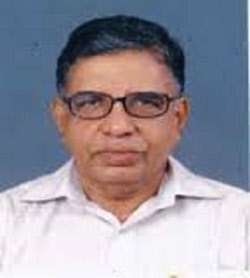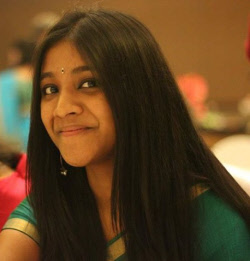An interview with M. Mohankumar.
At what age did you start writing? What inspired you to embark on this journey?
I began to write seriously rather late in life. The desire to write was there right from the school days. I used to contribute articles to the school magazine and, later, to the college magazine I am indebted to two of my high school teachers for fostering in me developing the love for language: my English teacher, a stern, scholarly person who taught much beyond the textbook, and the Headmaster who, after reading the books of P.G.Wodehouse and Earl Stanley Gardener –his favourite authors – would pass them on to me from time to time. For two years I taught English in a college in Kozhikode (Kerala), in an ambience that was conducive to academic work and literary pursuits. But then I entered the civil service, and long years of hard work followed, working in the field and thereafter in Departments like Home, Education and Finance. There was no time for literary activities. Those were days when officers attached much importance to noting and drafting in Government files. Some of my colleagues in the Secretariat would not have me ‘bury my talents’ in Government files. They wanted me to write for the public. And, one day, notwithstanding my misgivings, I took the plunge.
Life, we are sure, would have been very hectic during your days as a civil servant. How did you manage to keep your passion going? How easy or difficult was it to continue writing while also balancing a hectic job?
Once the urge to write reasserted itself, the poems came in a rush, day after day. I used to write one poem every day, sometimes two; they came out rapidly. I had the enthusiasm of a novice unfettered by any in-depth knowledge of modern poetry. And the obsession to revise and refine was to come much later. So the writing did not interfere with the official work.
Friends who saw my poems liked them. When the poems grew in number, I took them to Prof. Ayyapa Panicker, eminent poet-critic, and he wrote a generous foreword, titling it ‘Welcome to Helicon’. And he named the book after one of the poems, ‘Pearl Diver’. The book was released by Sri E.K. Nayanar, the then Chief Minister of Kerala.
I used to read my poems at the meetings of the ‘Poetry Chain’ presided over by Prof. Panicker. Meanwhile, the poems started appearing in reputed journals like Chandrabhaga, Kavya Bharati, Journal of the Poetry Society (India),Indian Literature, to name a few. That was encouragement enough, and it kept me going.
Although for us at Spark, your most seen facet is that of a poet, we do know that you write stories as well. What are the themes you usually explore through fiction?
For several years after my retirement (till I came to the U.S a few months back), I used to hold monthly meetings with some of my literary-minded friends. At these meetings we would discuss our poems and short stories. My short stories were written for those meetings – for a change. After the meetings, I would mail the stories to a larger group of friends for their views. The feedback was encouraging. That is how The Turning Point and Other Stories came to be published.
I am fascinated, and perplexed, by the phantasmagoria called life. It provides the material for my short stories as well as my poems. I seek inspiration from the experiences of life, my own as well as those around me. The ironies and the absurdities and the complexities of relationships form the basis of my short stories. Many of them are autographical, with a colouring of imagination thrown over them.
Talking about poetry, what do you love about writing poems? Where do you draw inspiration from for your poems?
Poetry, I think, is preeminently the art of verbal expression. I write poems to convey my emotions and feelings which I cannot otherwise communicate as effectively. A poem is an artifact built with diction, imagery, line-breaks, the space around etc., all of which ideally combine to produce a marvellous effect on the reader. These are the aspects that fascinate me in a poem. It is a challenge to fuse them together and bring off the poem. I do not follow any ‘ism’ in writing my poems. I have no desire to dazzle or perplex. I want to write accessible poems that will ‘come home to the bosom and business’ of the readers.
I draw inspiration for my poems mainly from my own joys and sorrows. Many of my poems are in the confessional mode. I am overawed by the sublimity of life, and amused by the bathos of it. I look for the extraordinary in the quotidian. A small news item, a snippet of information or a snatch of overheard conversation could provide the spark. And then I let the imagination build around it.
When do you feel poetry turns out better – when it is written spontaneously or after deliberate thought?
Although I have written a large number of poems, there are only a few that came out spontaneously. And these few have given me the greatest pleasure. I have laboured over the other poems. They grew over time, line by line, stanza by stanza, gained weight with new ideas. Writing is a difficult art, more so the writing of poetry. I go on redrafting the poem looking for the right word and listening for the music of the line. I do this till I reach a point where I feel that further revision would be counterproductive. T.S. Eliot in one of his poems described this process as ‘the intolerable wrestle with words’.
Your first collection of short stories was published recently by Authorpress. As someone who has published seven volumes of poetry, how different was this experience from writing a collection of poems?
A poem, they say, is a closed fist, a short story a half-open fist. The range and objective are different. You have more freedom, more maneuverability, in a short story; you could pour into a short story what you cannot accommodate in a poem. In my experience, writing a poem calls for greater discipline and concentration of effort than writing a short story. And, when it comes to publishing it is much more difficult to get a publisher for the poems.
Lastly, could you share a few words about your journey with Spark?
’Spark’ was a joyous discovery for me. I chanced upon it while looking for an online magazine for my poems. I liked the content, the format and the illustrations. And, more than anything else, the personal touch. For about a year and a half, I have been contributing poems to successive issues of the magazine. And I like the editorial approach: the prompt response, praising the good poems, suggesting edits for consideration. The contributor feels that he is part of the team putting together the magazine. It has been a delightful experience writing for this journal.
Questions by Anupama Krishnakumar






